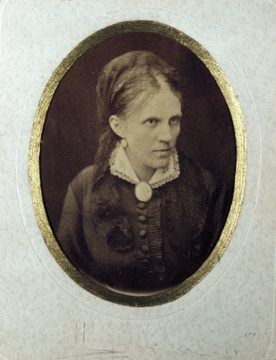Jennifer Wilson in The New York Times:
 In the spring of 1880, in the midst of what felt like a political tipping point, a new monument dedicated to the Russian poet Alexander Pushkin was unveiled in Moscow. Alexander II’s Great Reforms of the 1860s — including the emancipation of the serfs — had not satisfied the appetites of radicals for change. Most alarming to moderate Russians were the women who had begun joining the ranks of the self-described Nihilists. They smoked cigarettes, cut their hair short, preferred Feuerbach to romance novels and spurned marriage in favor of careers in science and medicine (or, occasionally, terrorism).
In the spring of 1880, in the midst of what felt like a political tipping point, a new monument dedicated to the Russian poet Alexander Pushkin was unveiled in Moscow. Alexander II’s Great Reforms of the 1860s — including the emancipation of the serfs — had not satisfied the appetites of radicals for change. Most alarming to moderate Russians were the women who had begun joining the ranks of the self-described Nihilists. They smoked cigarettes, cut their hair short, preferred Feuerbach to romance novels and spurned marriage in favor of careers in science and medicine (or, occasionally, terrorism).
Everyone could sense that Russia was on a collision course with itself, and few feared the potential outcome more than Fyodor Dostoyevsky. At the unveiling ceremony, he delivered a fiery speech, calling on Russians to regard new theories of social progress coming from the West as spiritually alien. He praised Tatyana, the heroine of “Eugene Onegin,” Pushkin’s 1833 novel in verse, for embodying a uniquely Russian spirit of self-sacrifice. A married woman who rejects the advances of her erstwhile lover, Tatyana was proof to Dostoyevsky that, as Andrew D. Kaufman puts it in “The Gambler Wife,” a true “Russian woman would always refuse to build her happiness on the unhappiness of others.”
A biography of the writer’s second spouse, Anna Dostoyevskaya, Kaufman’s book suggests that her husband’s readers would have heard his speech and recalled his own characters, like Sonya in “Crime and Punishment,” “who follows the repentant Raskolnikov to a Siberian prison camp.” Yet Kaufman, a specialist in Slavic literature at the University of Virginia, is principally concerned with what this philosophy would mean for a woman who was not fictional. In the early years of her marriage, Anna was called on to practice superhuman levels of selflessness and forgiveness. She lived at the mercy of her husband’s gambling addiction, teetering on financial ruin for years — at one point having to pawn her own underwear. Dostoyevsky did little to shield her from his domineering family, who tried to control his purse strings. When Anna wanted to go on a honeymoon to Germany, his stepson from his first marriage reproached her: “I don’t allow any European trips.”
More here.
